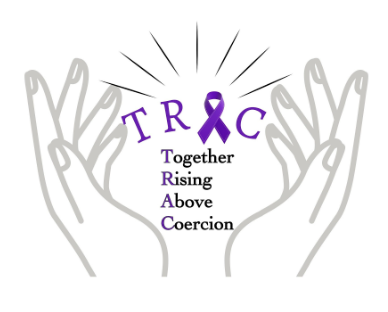In late June, the Together Rising Above Coercion (TRAC) coalition held a briefing at the Massachusetts State House, attended by numerous Coalition members and partners – including Jane Doe Inc. and the Massachusetts Law Reform Institute – advocates, legislators, and survivors.
The goal of the briefing was to bring greater attention to the critical need for legislation in Massachusetts to improve protections for victims of coercive control, a pattern of deliberate behavior by an abuser that substantially restricts their victim’s safety and autonomy.
Current law in Massachusetts (Chapter 209A) limits the definition of domestic abuse to physical abuse and coerced sexual relations, but many victims are also subject to other forms of persistent, harmful abuse and control, including intimidation, threats, isolation, technology abuse, and abusive litigation.
During the briefing, to underscore the importance of more explicit protections against these other forms of abuse, several survivors shared their personal stories – highlighting the lengths their abusers went to to control their lives and prevent them from achieving safety or liberation.
Like many events at the State House, members of the media were in attendance at the briefing, and, in their reporting, they included excerpts from the powerful testimony offered by survivors during the briefing.
Unfortunately, in the days following the briefing, we learned an abuser used threats and intimidation to get one survivor’s story removed from the record – ensuring that fewer people hear that survivor’s experience and perspective.
In doing so, however, the abuser did not succeed in shaking the resolve of the survivor or of our Coalition. In fact, the abuser provided a crystal clear example of exactly the kind of ongoing, harmful abuse that necessitates stronger protections in Massachusetts.
As long as the law fails to recognize and address the power imbalance that allows abusers to intimidate and control the people they’ve abused at every turn and that empowers abusers to protect their own reputations by silencing survivors’ voices, then cycles of violence and abuse will only continue. Let’s be clear: if survivors are prevented from telling their stories, or have those stories silenced, more people will be abused. People who otherwise might have recognized the abuse happening to them and found the resources and support to change their situation will continue to be harmed.
Lawmakers – including Senator Michael Moore, Representative Natalie Higgins, Representative Tram Nguyen, and Representative Natalie Blais – have introduced two critical pieces of legislation aimed at addressing the profound, negative impact of coercive control: An Act to Improve Protections Relative to Domestic Violence (H.1547/S.1077), which would expand domestic abuse protections to include various forms of coercive control, and An Act Relative to Controlling and Abusive Litigation (H.1399/S.1079), which would give courts and survivors more tools to prevent litigation aimed at control and intimidation.
The TRAC Coalition, our partners, and allies will not stop centering the voices of survivors in our efforts, and standing up in the face of efforts to silence or intimidate them. This is exactly the fight our Coalition elected to take on, and every time an abuser manipulates systems and uses threats in an effort to control a survivor and deny their truth, it is only further evidence of why policy action is critical and urgent.
For more information or to get involved, please follow TRAC on Facebook, Twitter, or Instagram.

